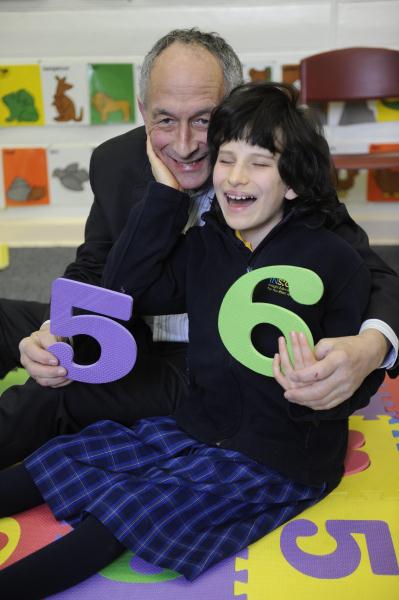
By NICOLE WILLIAMS
FACED with an inadequate education for his daughter, a Pearcedale father took matters into his own hands.
The Lachman family moved to Melbourne from Italy in 2007 so the youngest daughter Francesca, who is blind, could attend Royal Victorian Institute for the Blind (RVIB).
Only one year later, the school announced it was closing, leaving no specialised school for the blind and vision impaired in Victoria.
For Alan Lachman, the answer was to start his own.
After the announcement of the closure of the RVIB Mr Lachman said he and a number of other parents joined a ‘screaming parent movement’.
“Our family said that after three months of shouting, if nothing had happened, nothing is ever going to happen,” he said.
“When you’ve fire your best bullets and you haven’t killed your enemy, you’re not going to.
“I went home in December 2008 and said the only way we’re going to make a difference is if we found a school independently.”
Mr Lachman gathered information from vision impaired educators around the world to establish a model for what would become Insight Education Centre for the Blind and Vision Impaired.
Having partnered with Monash University, a purpose-built centre is currently being constructed at the Berwick campus.
Until that opens in January, the primary school is being run in a small classroom at Beaconhills College Junior Campus in Pakenham.
The organisation is also focusing on teaching specialised skills to young and eager teachers to teach at the Insight school and also the mobile classroom.
From Term 4 this year, Insight will also begin offering a life management program help kids learn about life skills which can only be taught.
“These kids are not going to get this stuff anywhere else. People think the place to gain life skills is to go to mainstream school,” she said.
“Those kids don’t learn from other kids – they can’t see so they don’t know what other kids are doing. The only way is to have someone who knows teach you.”
The Insight school will have capacity for 48 students, spread through six classrooms and the main source of children is from kindergarten.
“We are being very proactive in reaching out to those going into their first year of school,” Mr Lachman said.
“We are also take time to build relationships with schools. Schools need to see that they are not losing a child but helping the child to do better.”






